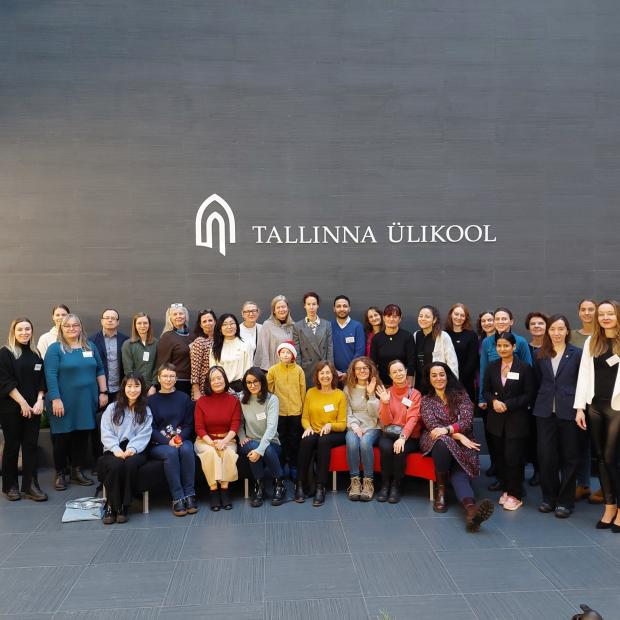HOLM2023: Day One
The Conference on Research on Social and Affective Factors in Home Language Maintenance and Development (HOLM2023) commenced on Thursday, December 14, 2023.
HOLM2023 marks the eighth conference of the International Association for Applied Linguistics (AILA) Research Network (ReN) on 'Social and Affective Factors in Home Language Maintenance and Development.' This Research Network is designed with a comprehensive focus, encompassing both formal (within school systems) and informal (community-based grassroots) initiatives. Its overarching goal is to explore and advance research on home language maintenance and development.
The conference was inaugurated by Dr. Birgit Vilgats (Director of TLU BFM), Professor Andrea Schalley (Karlstad University), and Dr. Susana Eisenchlas (Griffith University), who are leaders in the AILA ReN on Social and Affective Factors in Home Language Maintenance and Development and the Conference Chair, Professor Anastassia Zabrodskaja.
The first day of the conference commenced with a keynote address delivered by Professor Xiao Lan Curdt-Christiansen (University of Bath, United Kingdom). In her presentation titled 'Pride, Prejudice, and Pragmatism: Family Language Policies in the United Kingdom,' Professor Curdt-Christiansen explored the impact of mobility and ongoing changes in sociocultural contexts on family language policy in the United Kingdom. This study, which involved 470 transnational families across the United Kingdom and utilized a questionnaire, provided a descriptive analysis of various family language practices in England. It established how attitudes influence the different types of family language policy in these families. In addition to the descriptive analysis, interview data was used to understand the driving forces behind the various language practices and language management activities. The study also explored how ideological constructs of 'pride,' 'prejudice,' and 'pragmatism' are directly related to negative or positive attitudes towards the development of children’s heritage language.
Subsequently, the first day of the conference featured four sessions. These studies collectively contribute to the broader discourse on family language policy, enriching our understanding of the multifaceted factors that influence language choices and maintenance within diverse immigrant and diasporic communities.
As the discussions of the first conference day unfolded, it became evident that scholars in the field of family language policy and home language maintenance are poised to play a vital role in addressing critical challenges that individual families face on multiple fronts. This promises a future where research informs and supports the navigation of complex societal dynamics and issues. In conclusion, the first day of the conference provided an insightful and promising beginning.
To obtain further information, please do not hesitate to reach out to Professor Anastassia Zabrodskaja, HOLM2023 conference chair. You can contact her at anastassia.zabrodskaja@tlu.ee.
